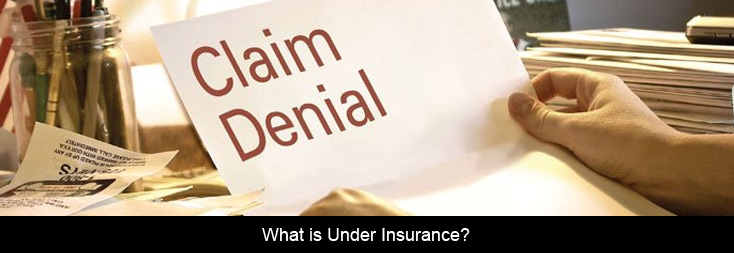What is under insurance and how do we avoid being under insured?
Recent natural disasters and especially flooding have brought the dreaded message for many insured farm owners “Sir – You are under insured!” This is a major concern for both policyholders and short term insurers.
Many South Africans assume that if they have a home contents insurance policy in place, they will be covered if any of their possessions are lost, stolen or damaged. The same applies to farmers who have insured their farming equipment.
What they don’t realise is that if these possessions are not insured at their replacement value they could have to cough up – even if they have been diligently paying their insurance premiums every month.
According to research conducted by CIB Insurance Solutions (CIB), in 2010, underestimating the replacement value of farming equipment, combined with a failure to regularly review their policies, means that the percentage of South Africa’s farmers who are underinsured could be as high as 70%.
In this post we would like to pay closer attention to the nature and risks of under insurance and provide advice on how to prevent being under insured.
Definition of Under Insurance and the principle of “Average”
Under insurance can be best defined as the situation where your insurance cover – what your insurance policy will pay out in the case of a loss and subsequent claim, is less than what it would cost to replace the lost items. This obviously means that while your insurance payout will help you towards replacing your losses, you will have to partially fund this replacement.
We could also describe under insurance as the occurrence when there is a shortfall between the amount of cover selected and the actual replacement value of what is being insured. The result is that you will only be paid a proportional part of your claim. In the event of a claim the principle of ‘average’ would then be applied.
What is the principle of “average”?
Average is an insurance principle which has frustrated many insured clients – yet it is a simple and easy one to understand. If an item or property is underinsured, the insured must bear a rateable proportion of each and every loss. Technically, you become your own insurer for the balance of the loss.
Average is applied for three main reasons:
· To prevent underinsurance.
· To obtain a full premium for the risk the insurer is carrying.
· To ensure that each party bears a fair share of each loss.
The formula determining average is as follows:
· (Sum Insured / Value at Risk) x Amount of Loss
This can be best explained by way of a few examples:
Example 1:
A machine is insured for R10 000. The actual replacement value of the item is R20 000. If the machine was damaged by fire resulting in repairs to the value of R5 000 in repairs, the claims settlement would be calculated as follows:
(R10 000 / R20 000) x R5 000 Amount payable : R2 500
Example 2:
A building is insured for R200 000. The actual reinstatement value of the building is R300 000. If the building was damaged by a hail storm to the value of R60 000 in repairs, the claims settlement would be calculated as follows:
(R200 000 / R300 000) x R60 000 Amount payable : R40 000
Example 3:
You put in a claim for R5 000 worth of damage to your car.
Value of car = R100 000
Insured for = R 80 000
As you are under insured the payout will be calculated as follows:
80 000 x 5000- 100 000 = R 4000
What is the replacement value of goods?
It is important to also understand the term replacement value:
The replacement value of goods is what it would cost you, at the time of a claim, to replace all your belongings with similar brand new ones. If you submit a claim, your insurer will calculate the replacement value you should have insured yourself for. If you insured your belongings for less than that, your insurer will only pay a part of your claim.
Why would a person be under insured?
The reasons for being found under insured can be found both in negligent failure as well as deliberate choice! Both might also be closely related to rising inflation and the cost of insurance.
The rising inflation rate means there’s an increasing gap between the (market) value for which you insured your goods and its real replacement value. Your policy may take a 10% inflation increase into account; what happens when this figure rises to 20%? It means that your claim will pay out half of what you expected to get.
- Negligent failure
Many people don’t realise that they have insured an item (or items) for its market value, not its full replacement value. In this scenario the insurance policy will pay out whatever the market value of the item was set at. Due to inflation this amount will not be enough to replace the item at the current new price (the replacement value), and the policy holder will thus be left in a situation where the insurance payout is not high enough to allow for the replacement of the item.
Many clients are just not prudent when it comes to updating their policies and inventory lists. This is probably the most common sort of under insurance encountered.
- Deliberate choice
Sometimes it is just too expensive to insure the items to their full replacement value, and some reason that, while they won’t be able to replace the exact item, some sort of financial compensation for their loss is better than none at all. These insured clients under insure their goods in order to save a bit of money on their monthly insurance premiums.
How to avoid:
We would like to share a few suggestions on how to prevent being under insured:
- Keep in mind that the replacement values of goods change over time.
- If the policy is not reviewed and the higher replacement value is not taken into account, cover becomes inadequate.
- You – or an expert – need to make a realistic estimate of the true replacement value of your insurable assets, equipment etc.
- You also can’t insure an item for something that it’s not; you can however insure an item for its replacement.
- Update your household inventory list or other list of assets on a regular basis to ensure that any new items are included and to remove items that that you no longer have.
- If you fail to list the values of your new DVD player or TV then you would probably not be insured adequately.
- It also does not make sense to be paying to insure your old washing machine when you have just replaced it with a new one with a higher value.
- Pay special attention to specialized items where specialized insurance is required.
- Farmers are advised to regularly review their policies to ensure that natural disasters such as the recent flooding will not bankrupt them. It is best to contact a specialist agricultural broker, who can do a full risk evaluation and give advice on the precautions, potential threats and the insurance required to cover weather and natural disaster-related claims.
We would like to suggest more communication between clients and their brokers or insurance companies. Short Term insurance is not a once-off! You need to review your financial needs regularly to avoid nasty surprises when you have to rely on your insurance policy!




